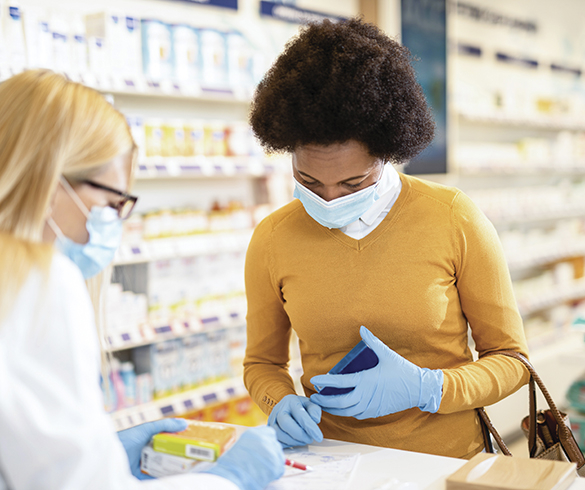
5 Ways to Ensure Medication Safety During COVID-19
During the COVID-19 pandemic, staying healthy is top of mind. For individuals at risk for or diagnosed with COVID-19, the addition of new treatments may pose another medical danger: adverse drug events (ADEs). ADEs cause an estimated 150,000 deaths per year in the United States and 1.3 million emergency room visits, resulting in nearly 350,000 people hospitalized for further treatment.
The experts at Tabula Rasa HealthCare, a team of clinical pharmacists building solutions for personalized medication safety, recommend several actions to improve medication safety and prevent ADEs:;

1. Keep an updated list of all your medications.
Ask your doctor(s) for a list of all your medications and update it with over-the-counter medications to ensure you both have a complete profile. Document why you take each medicine, the dose, frequency and time of day. Always have access to it by, for example, creating a secure note in your phone for safekeeping. Also, share a copy with a loved one in case of an emergency.
2. Ask your pharmacist to review your medication regimen.
Make an appointment with your pharmacist to review your medications, including prescription, non-prescription, supplements, herbals and recreational drugs. While you may see multiple health care providers, your pharmacist can provide a holistic review of your regimen. Ask questions and try to understand the purpose of each medication. Your pharmacist likely has access to technological tools that identify risk for preventable ADEs. For example, Tabula Rasa HealthCare’s MedWise is a one-of-a-kind technology solution that compares how medications interact together. Using this unique solution, pharmacists may assist you with managing your medications safer and smarter. If you are not aware if your health plan covers pharmacist visits, consider selecting a plan that does.
3. Ask about the benefits of a “pharmacogenomic” test.
If you have a chronic illness and take multiple medications, ask your pharmacist for a test that identifies your personal gene make-up that can affect the way certain medications interact with each other in your body. With this data, your pharmacist can determine if your medications will work as expected, or if they may put you at risk for ADEs. With tools that store this data, your pharmacist can personalize your medication regimen and help reduce your risk for ADEs.
4. Ask your pharmacist about risks with every new medication.
If you are diagnosed with COVID-19, talk to your pharmacist before taking any new medications to determine if they may increase your risk for ADEs. When adding or removing medications to or from your regimen, it is important to understand how these changes impact your risk for an ADE. Another tool your pharmacist may use is the MedWise Risk Score to help you better understand and measure medication risk with changes. Your pharmacist may adjust how you take your medications or recommend an alternative that is safer for you.
5. Develop a routine for taking your medications and stick with it.
Be consistent when you take your medications to avoid ADEs. Your pharmacist can provide you with a unique medication profile that outlines the time to take each of your medications for safety. Setting reminders such as an alert on your cell phone or sticky notes can help remind you to take your medication on time.
Pharmacists are medication safety “quarterbacks,” helping optimize your medication regimen, avoid ADEs and assure you and your loved ones stay healthy and safe, during and after COVID-19. To learn more, visit trhc.com/nextfrontier.
Source:
Tabula Rasa HealthCare


